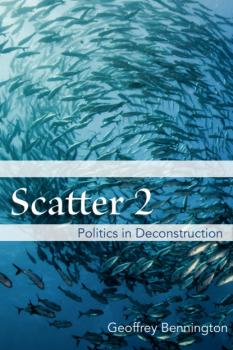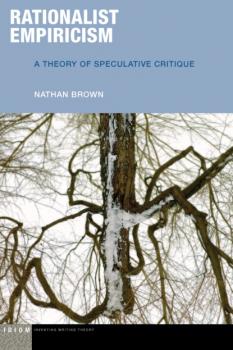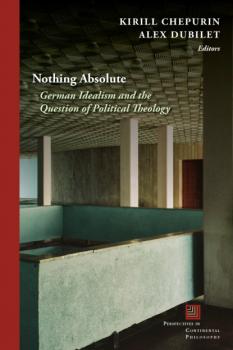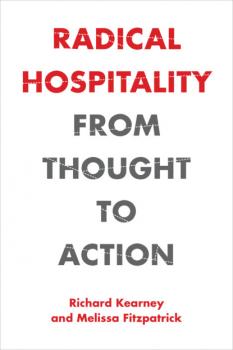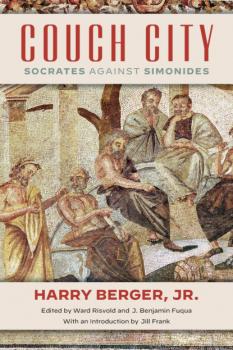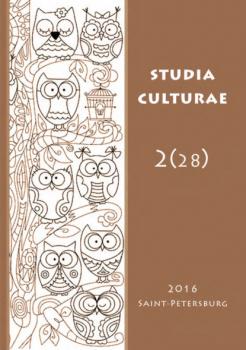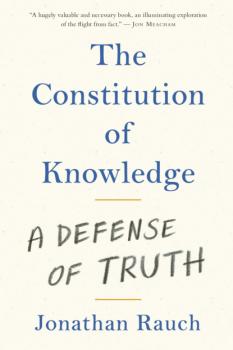ТОП просматриваемых книг сайта:
Философия
Различные книги в жанре Философия, доступные для чтения и скачиванияАннотация
This book deconstructs the whole lineage of political philosophy, showing the ways democracy abuts and regularly undermines the sovereignist tradition across a range of texts from the Iliad to contemporary philosophy. Politics is an object of perennial difficulty for philosophy—as recalcitrant to philosophical mastery as is philosophy’s traditional adversary, poetry. That difficulty makes it an attractive topic for any deconstructive approach to the tradition from which we inherit our language and our concepts. Scatter 2 pursues that deconstruction, often starting with, and sometimes departing from, the work of Jacques Derrida by attending to the concepts of sovereignty on the one hand and democracy on the other. The book begins by following the fate of a line from Homer’s Iliad , where Odysseus asserts that “the rule of many is no good thing, let there be one ruler, one king.” The line, Bennington shows, is quoted, misquoted, and progressively Christianized by Aristotle, Philo Judaeus, Suetonius, the early Church Fathers, Aquinas, Dante, Ockham, Marsilius of Padua, Jean Bodin, Etienne de la Boétie, up to Carl Schmitt and Erik Peterson, and even one of the defendants at the Nuremberg trials, before being discussed by Derrida himself. In the book’s second half, Bennington begins again with Plato and Aristotle and tracks the concept of democracy as it regularly abuts and undermines that sovereignist tradition. In detailed readings of Hobbes and Rousseau, Bennington develops a notion of “proto-democracy” as a possible name for the scatter that underlies and drives the political as such and that will always prevent politics from achieving its aim of bringing itself to an end.
Аннотация
Twenty-first-century philosophy has been drawn into a false opposition between speculation and critique. Nathan Brown shows that the key to overcoming this antinomy is a re-engagement with the relation between rationalism and empiricism. If Kant’s transcendental philosophy attempted to displace the opposing priorities of those orientations, any speculative critique of Kant will have to re-open and consider anew the conflict and complementarity of reason and experience. Rationalist Empiricism shows that the capacity of reason and experience to extend and yet delimit each other has always been at the core of philosophy and science. Coordinating their discrepant powers, Brown argues, is what enables speculation to move forward in concert with critique.Sweeping across ancient, modern, and contemporary philosophy, as well as political theory, science, and art, Brown engages with such major thinkers as Plato, Descartes, Hume, Hegel, Marx, Heidegger, Bachelard, Althusser, Badiou, and Meillassoux. He also shows how the concepts he develops illuminate recent projects in the science of measurement and experimental digital photography. With conceptual originality and argumentative precision, Rationalist Empiricism reconfigures the history and the future of philosophy, politics, and aesthetics.
Аннотация
Toward a Feminist Ethics of Nonviolence brings together major feminist thinkers to debate Cavarero’s call for a postural ethics of nonviolence and a sociality rooted in bodily interdependence. Toward a Feminist Ethics of Nonviolence brings together three major feminist thinkers—Adriana Cavarero, Judith Butler, and Bonnie Honig—to debate Cavarero’s call for a postural ethics of nonviolence. The book consists of three longer essays by Cavarero, Butler, and Honig, followed by shorter responses by a range of scholars that widen the dialogue, drawing on post-Marxism, Italian feminism, queer theory, and lesbian and gay politics. Together, the authors contest the boundaries of their common project for a pluralistic, heterogeneous, but urgent feminist ethics of nonviolence.
Аннотация
Featuring scholars at the forefront of contemporary political theology and the study of German Idealism, Nothing Absolute explores the intersection of these two flourishing fields. Against traditional approaches that view German Idealism as a secularizing movement, this volume revisits it as the first fundamentally philosophical articulation of the political-theological problematic in the aftermath of the Enlightenment and the advent of secularity. Nothing Absolute reclaims German Idealism as a political-theological trajectory. Across the volume’s contributions, German thought from Kant to Marx emerges as crucial for the genealogy of political theology and for the ongoing reassessment of modernity and the secular. By investigating anew such concepts as immanence, utopia, sovereignty, theodicy, the Earth, and the world, as well as the concept of political theology itself, this volume not only rethinks German Idealism and its aftermath from a political-theological perspective but also demonstrates what can be done with (or against) German Idealism using the conceptual resources of political theology today. Contributors: Joseph Albernaz, Daniel Colucciello Barber, Agata Bielik-Robson, Kirill Chepurin, S. D. Chrostowska, Saitya Brata Das, Alex Dubilet, Vincent Lloyd, Thomas Lynch, James Martel, Steven Shakespeare, Oxana Timofeeva, Daniel Whistler
Аннотация
Radical Hospitality addresses a timely and challenging subject for contemporary philosophy: the ethical responsibility of opening borders, psychic and physical, to the stranger. Kearney and Fitzpatrick show how radical hospitality happens by opening oneself in narrative exchange to someone or something other than ourselves—by crossing borders, whether literal or figurative. Against the fears, dogmas, and demands for certainty and security that push us toward hostility, we also desire to wager with the unknown, leap into the unanticipated, and celebrate the new, a desire this book seeks to recognize and cultivate. The book contends that hospitality means chancing one’s hand, one’s arm, one’s very self, thereby opening a vital space for new voices to be heard, shedding old skins, and welcoming new understandings. Radical Hospitality engages with urgent moral conversations concerning identity, nationality, immigration, commemoration, and justice, moving between theory and praxis and on to the formative life of the classroom. Building on key critical debates on the question of hospitality ranging from phenomenology, hermeneutics and deconstruction to neo-Kantian moral critique and Anglo-American virtue ethics, the book explores novel possibilities for an ethics of hospitality in our contemporary world of border anxiety, refugee crises, and ecological catastrophe.
Аннотация
Crowning six decades of literary, rhetorical, and historical scholarship, Harry Berger, Jr., offers readers another trenchant reading. Berger subverts the usual interpretations of Plato’s kalos kagathos , showing Socrates to be trapped in a double ventriloquism, tethered to his interlocutors’ speech acts even as they are tethered to his. Plato’s Republic and Protagoras both reserve a small but significant place for a poet who differs from Homer and Hesiod: the lyric poet Simonides of Ceos. In the Protagoras , Socrates takes apart a poem attributed to Simonides and uses this to finish off the famous and supposedly dangerous sophist, Protagoras. Couch City is a close reading of the comic procedures Socrates deploys against Protagoras as he reduces him to silence. But it also shows that Socrates takes the danger posed by Protagoras and his fellow sophists seriously. Even if they are represented as buffoons, sophists are among the charismatic authority figures—poets, rhapsodes, seers, orators, and lawgivers—who promote views harmful to Athenian democracy. Socrates uses Simonides’s poem to show how sophists not only practice misinterpretation but are unable to defend against it. Berger ports his roots as a pioneering literary theorist into this rhetorical discussion, balancing ideas such as speech-act theory with hard-nosed philology. The result is a provocative and counterintuitive reassessment of Plato’s engagement with democracy.
Аннотация
Five hundred years before “Jabberwocky” and Tender Buttons , writers were already preoccupied with the question of nonsense. But even as the prevalence in medieval texts of gibberish, babble, birdsong, and allusions to bare voice has come into view in recent years, an impression persists that these phenomena are exceptions that prove the rule of the period’s theologically motivated commitment to the kernel of meaning over and against the shell of the mere letter.This book shows that, to the contrary, the foundational object of study of medieval linguistic thought was vox non-significativa , the utterance insofar as it means nothing whatsoever, and that this fact was not lost on medieval writers of various kinds. In a series of close and unorthodox readings of works by Priscian, Boethius, Augustine, Walter Burley, Geoffrey Chaucer, and the anonymous authors of the Cloud of Unknowing and St. Erkenwald , it inquires into the way that a number of fourteenth-century writers recognized possibilities inherent in the accounts of language transmitted to them from antiquity and transformed those accounts into new ideas, forms, and practices of non-signification. Retrieving a premodern hermeneutics of obscurity in order to provide materials for an archeology of the category of the literary, Medieval Nonsense shows how these medieval linguistic textbooks, mystical treatises, and poems were engineered in such a way as to arrest the faculty of interpretation and force it to focus on the extinguishing of sense that occurs in the encounter with language itself.
Аннотация
В очередной выпуск научного рецензируемого журнала «Studia Culturae» вошли научные статьи, посвященные изучению актуальных проблем теории и истории культуры, философии культуры, эстетики и философии искусства, истории и культурологи областничества. Издание предназначено для всех, интересующихся философией, культурой и искусством.

